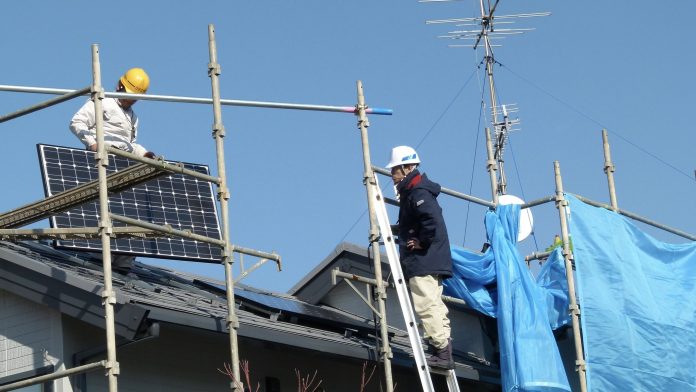Transcript:
Each winter, as January approaches, Eric Laine of Binghamton, New York, sits down with his wife and kids to write New Year’s resolutions … New Year’s climate resolutions.
Laine: “It is a way for us to talk about the importance of doing our part … We’re led to believe that we make so little difference, really, the actions of one person or one family. But in reality, we can do quite a bit.”
One year, they pledged to switch to renewable energy and joined a community solar farm.
Another year, they committed to electrifying their transportation. Now Laine and his wife both drive EVs.
And one year, after lots of research, they concluded that one of the best ways to reduce their climate-warming pollution was to stop eating meat. Several years later, Laine’s wife is vegan, he’s vegetarian, and their kids eat a mostly plant-based diet.
Laine and his wife are committed to including their kids in the process of thinking through what steps they can take each year, as individuals and as a family.
Laine: “They’re still pretty young, but old enough to realize that their actions and what’s occurring around them play a big part in how the world around them is shaped. And we’re trying to empower them to realize that, that the decisions that they make are going to be consequential to their future.”
Reporting credit: Sarah Kennedy / ChavoBart Digital Media / Rewiring America
Only 28% of U.S. residents regularly hear about climate change in the media, but 77% want to know more. You can put more climate news in front of Americans in 2025. Will you chip in $25 or whatever you can?




